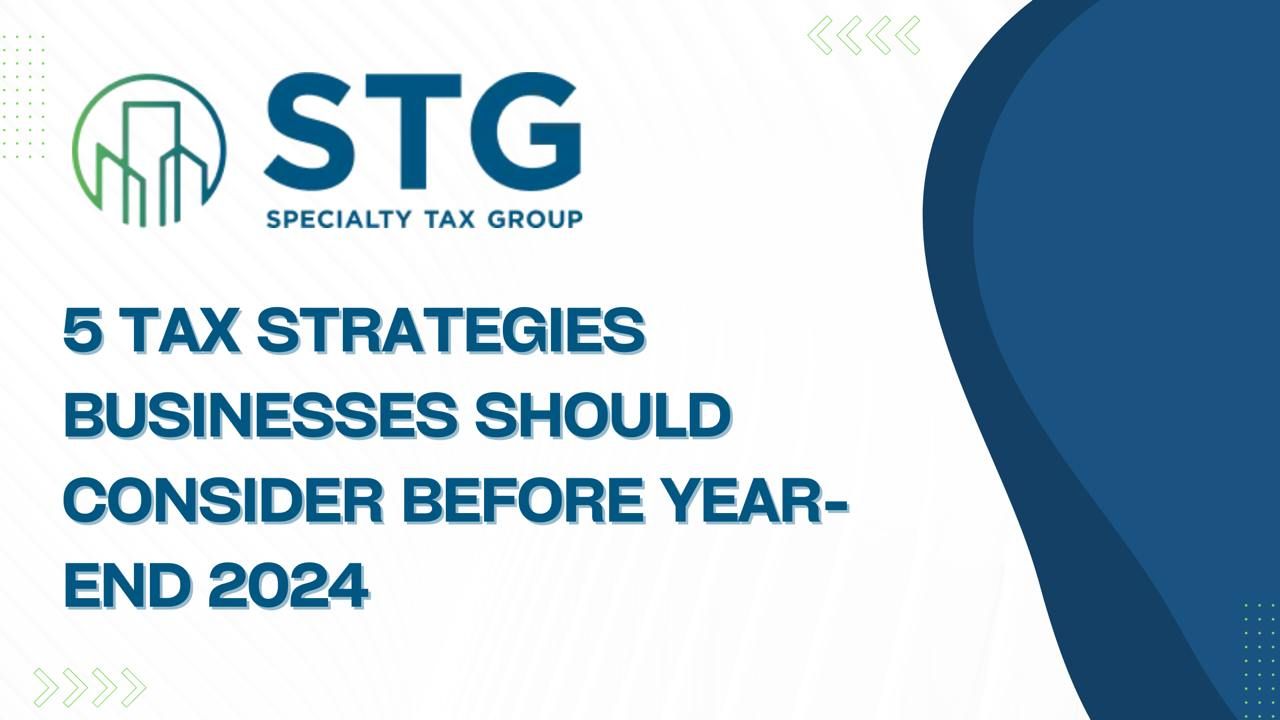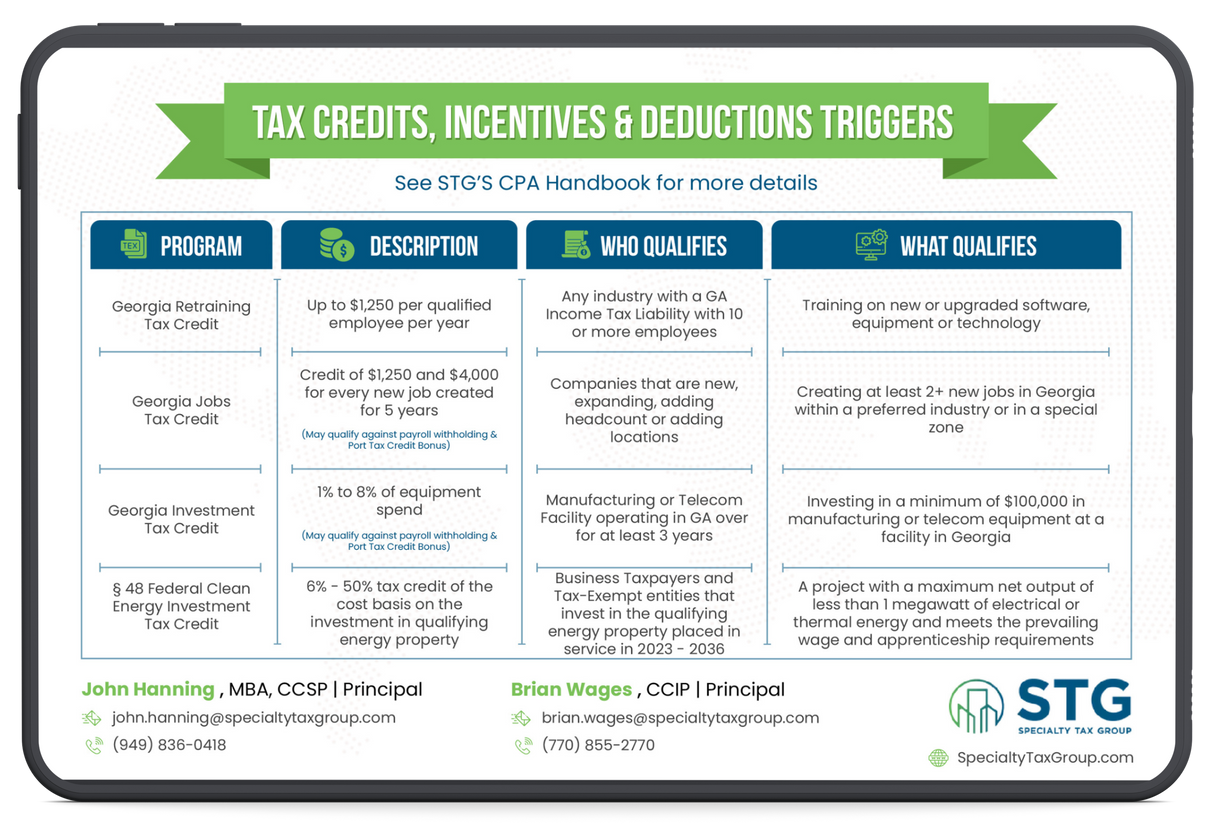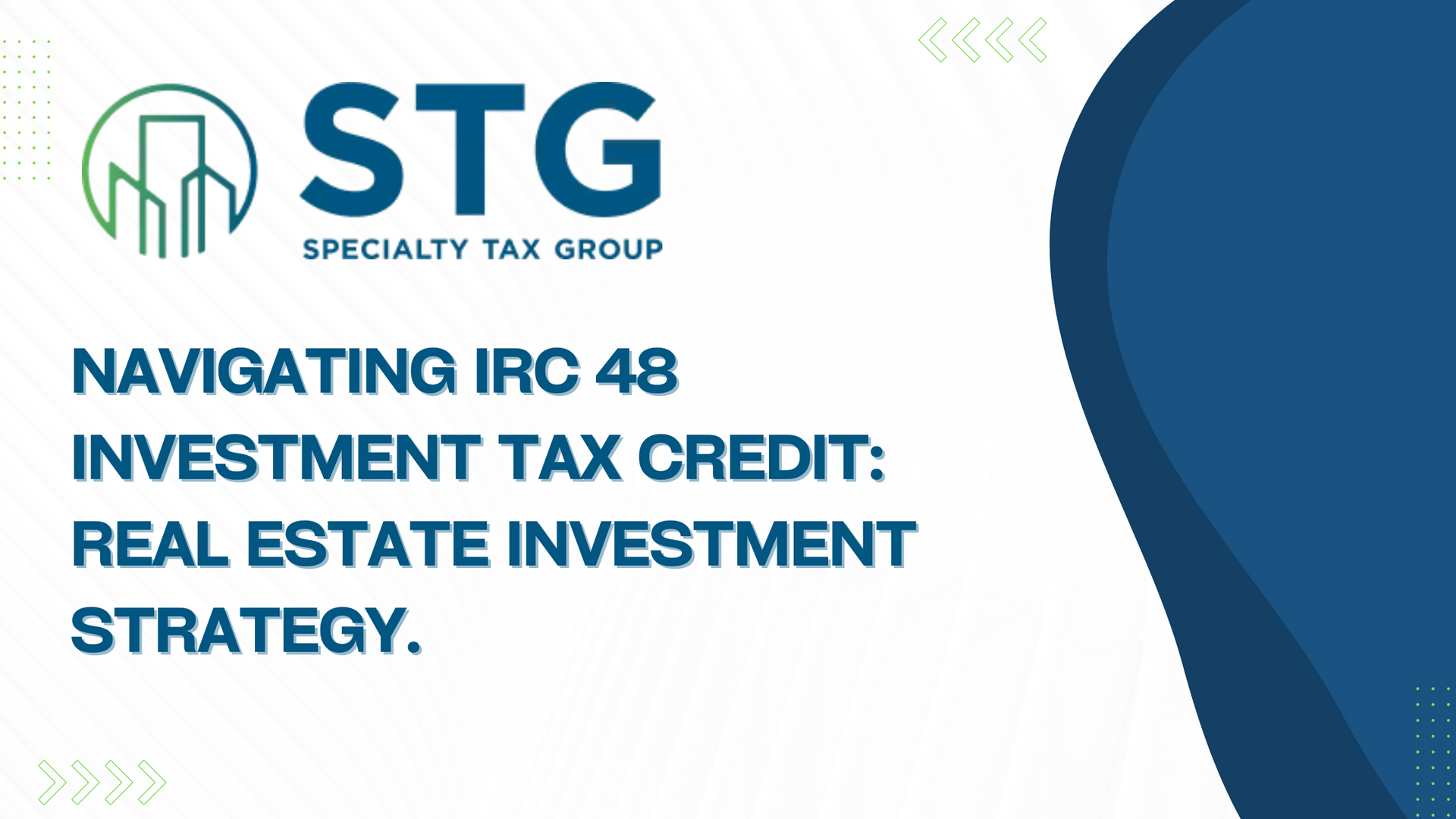This blog post has been researched, edited, and approved by John Hanning and Brian Wages. Join our newsletter below.
Newsletter Form
5 Tax Strategies Businesses Should Consider Before Year-End 2024
As the end of the year approaches, businesses must reassess their tax strategies to ensure they are maximizing their savings and preparing for any changes in tax law that could impact their bottom line. With tax regulations constantly evolving, staying informed and proactive can make a significant difference in your financial health. By strategically planning your tax moves before the close of 2024, you can take advantage of various incentives and deductions that may not be available next year. This blog outlines five essential tax strategies every business should consider implementing before the year ends, helping you to optimize your tax position and enhance your cash flow.
1. Invest in Renewable Energy for Tax Credits
Renewable energy investments, particularly solar panels, not only support sustainability but also offer significant tax incentives. The Clean Energy Investment Credit allows businesses to claim a substantial tax credit for installing renewable energy systems, including solar panels.
Benefits: The credit can offset up to 50% of the installation costs, providing immediate tax savings and reducing the overall cost of going green.
Considerations: In addition to the federal tax credit, many states offer additional incentives, making renewable energy investments even more attractive.
Long-Term Savings: Beyond the initial tax credit, businesses will benefit from reduced energy costs, contributing to long-term financial sustainability.
Check out our previous blog on renewable energy tax incentives here.
2. Utilize Cost Segregation to Accelerate Depreciation
Cost segregation is a strategic tax planning tool that allows businesses to accelerate the depreciation of specific building components. By identifying assets within a property that can be depreciated over shorter periods, you can significantly increase your deductions and improve cash flow.
Ideal for: This strategy is particularly beneficial for owners of commercial real estate, such as office buildings, warehouses, retail centers, and even AirBnb’s.
Benefits: Cost segregation can lead to substantial tax savings by reducing taxable income and freeing up cash that can be reinvested into your business.
Action Steps: Schedule a cost segregation study before the year-end to ensure you maximize your depreciation deductions for the 2024 tax year.
Learn more about cost segregation here.
3. Prepare for the Decline in Bonus Depreciation
The 100% bonus depreciation introduced under the Tax Cuts and Jobs Act (TCJA) has been a game-changer for businesses investing in capital assets. However, this provision is set to phase out, with the deduction dropping to 60% for properties place-in-service in 2024. As this benefit diminishes, it’s crucial to plan accordingly.
Impact: The phased reduction means businesses will need to reassess their capital expenditure plans to optimize depreciation benefits before the rate decreases further.
Strategy: If you have planned significant asset purchases, consider accelerating these investments to benefit from the higher depreciation rate before it phases out.
Future Planning: Incorporate the declining bonus depreciation into your long-term financial planning to minimize its impact on your tax liabilities in future years.
4. Conduct a Fixed Asset Review
A fixed asset review is an essential year-end activity for any business. By thoroughly reviewing your fixed assets, you can identify opportunities for additional depreciation deductions and ensure your financial statements accurately reflect your asset base.
Why It Matters: Over time, businesses accumulate assets that may no longer be in use or have been fully depreciated. Identifying and writing off these assets can lead to significant tax savings.
Action Steps: Collaborate with your accountant to conduct a detailed review of your fixed asset register. Identify obsolete or fully depreciated assets and adjust your records to reflect these changes.
Tax Savings: A well-executed fixed asset review can reveal additional depreciation deductions, contributing to a lower taxable income for the year.
Read our guide about conducting a fixed asset review.
5. Take Advantage of R&D Tax Credits
Research and Development (R&D) tax credits are among the most valuable incentives available to businesses that invest in innovation and technological advancement. Whether your company is developing new products, processes, or software, R&D tax credits can provide substantial financial benefits.
Eligibility: Many businesses are surprised to find that their activities qualify for R&D credits. If your company is involved in improving existing products or developing new ones, you may be eligible.
Benefits: The R&D tax credit directly reduces your tax liability on a dollar-for-dollar basis, which can significantly lower your federal and state income taxes.
Action Steps: Review your business activities with a tax professional to identify qualifying R&D expenses. Ensure you are capturing all eligible costs, including wages, supplies, and contracted research.
Extra Tips for State-Specific Tax Credits
In addition to these federal tax strategies, businesses should also consider state-specific tax credits that can further enhance their savings. State tax credits vary widely and can offer significant benefits for businesses that qualify. Below are some extra tips based on popular state credits:
Georgia: Retraining Tax Credit, Jobs Tax Credit, Manufacturers Investment Tax Credit.
Tennessee: Job Tax Credit, Industrial Machinery Tax Credit.
South Carolina: New Jobs Tax Credit.
Add one of the many state tax credits available in these states. Read the full guide here to their tax credits and incentives. Click here to see the State Tax Credits guide.
By considering these five tax strategies and taking advantage of both federal and state-specific credits, your business can maximize tax savings, improve cash flow, and position itself for financial success as we approach the end of 2024. Proactive tax planning is key to staying ahead of the curve, so be sure to consult with a tax professional who can tailor these strategies to your specific needs and ensure compliance with the latest tax regulations. With the right approach, you can navigate the complexities of the tax code and secure your business’s financial future.






